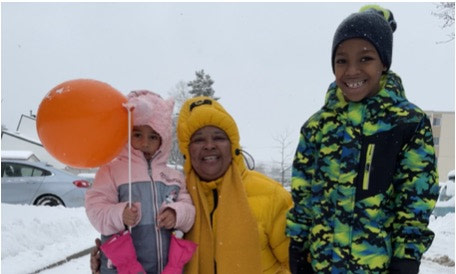Plenary meeting summary
Gatineau residents call for accessible and transparent public consultations
Sophie Demers
Gatineau is reviewing and updating its guidelines on citizen participation in municipal affairs, originally adopted in 2005. The process has three phases. The first, which has been completed, was the evaluation of the current guidelines. The second phase was the analysis of case studies and the consultative process, the results of which were presented to the municipal council on October 15. The city is in phase three, which is writing up the recommended update based on the information gathered in the two previous phases.
“This second phase of the Committee's work allowed us to meet with citizens last summer to hear what, when, and how they wanted to be consulted in the future, and to discuss our reflection to establish a framework for citizen participation in response to Gatineau's specificities,” said Anik Des Marais, Mitigomijokan councillor and spokesperson for the working committee for updating the guidelines.
Phase 2 findings
Nine activities have been organized since May of this year; across all events there were over 450 participants. Included in these events was a Youth Commission discussion workshop to better understand how to get young people involved in local politics.
An independent non-partisan company Institut du Nouveau Monde (INM) conducted the study. They found that most residents do not participate in citizen consultation activities, with a large portion not knowing when the meeting takes place. It was found that the main topics of interest for residents were regional and urban planning issues, transportation, safety, and accessibility.
Some concerns voiced by Des Marais’ residents were accessibility to meetings and consultations. Many consultation meetings were too late in the evening and lasted too long, making it difficult for the average person to attend. They asked for more flexibility, and opportunities to participate online.
Additionally, residents wanted to have clear indications, before a meeting or consultation, of what level of participation is expected and to have time to get all the information to be informed before participating. Residents also asked for follow-up information when the decision-making process moves forward.
According to INM, residents preferred city communication to go directly to them by email, post or telephone. However, public communication through social media or public signage was important for larger projects.
Some suggested improvements highlight that a summary of the process and follow-up of results are needed, as well as online and face-to-face ways to voice concerns with a particular consultation or project. Residents also want to know how their feedback is considered when a decision is made.
INM suggests that the city consider creating an office dedicated to large-scale projects that require citizen interaction, as well as creating a municipal centre of expertise that allows the city to call in external experts. Both options could be done completely or partially.
Phase 3 of the guideline updates is underway. The final proposal to the municipal council is scheduled for February 2025.




